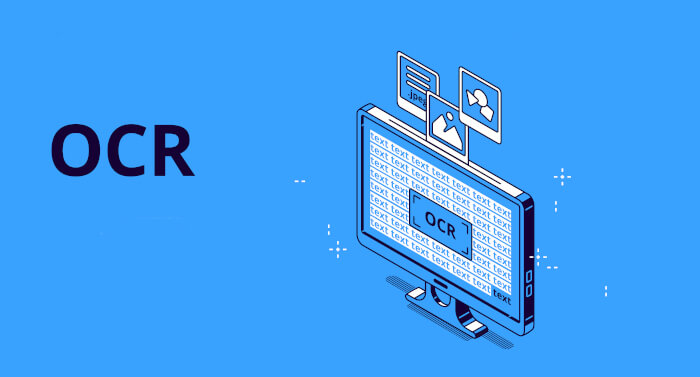Ocrad is an OCR (Optical Character Recognition) program based on a feature extraction method. It reads images in pbm (bitmap), pgm (greyscale) or ppm (color) formats and produces text in byte (8-bit) or UTF-8 formats.
The software also includes a layout analyser able to separate the columns or blocks of text normally found on printed pages.
Ocrad can be used as a standalone console application, or as a backend to other software. It’s mainly for research purposes.
Ocrad recognizes characters by its shape, and the reason it is so fast is that it does not compare the shape of every character against some sort of database of shapes and then chooses the best match. Instead of this, Ocrad only compares the shape differences that are relevant to choose between two character categories, mostly like a binary search.
Features include:
- Uses the ISO 10646 character set internally which can represent over 2 thousand million characters.
- Pass text through filters. Ocrad provides both built-in filters and user-defined filters. Built-in filters are:
- –filter=letters – Forces every character that resembles a letter to be recognized as a letter. Other characters will be output without change.
- –filter=letters_only. This is the same as –filter=letters, but other characters will be discarded.
- –filter=numbers. This forces every character that resembles a number to be recognized as a number. Other characters will be output without change.
- –filter=numbers_only. This is the same as –filter=numbers but other characters will be discarded.
- –filter=same_height. This discards any character (or noise) whose height differs in more than 10 percent from the median height of the characters in the line.
- –filter=text_block. This discards any character (or noise) outside of a rectangular block of text lines.
- –filter=upper_num. This forces every character that resembles a uppercase letter or a number to be recognized as such. Other characters will be output without change.
- –filter=upper_num_mark. This is the same as –filter=upper_num’, but other characters will be marked as unrecognized.
- –filter=upper_num_only. This is the same as –filter=upper_num’, but other characters will be discarded.
- Cross-platform support – runs under Linux, FreeBSD, NetBSD, OpenBSD, and Mac OS X.
Website: www.gnu.org/software/ocrad
Support: Manual
Developer: Antonio Diaz Diaz
License: GNU GPL v2 or any later version
Ocrad is written in C++. Learn C++ with our recommended free books and free tutorials.
Return to OCR Systems | Return to OCR Tools
| Popular series | |
|---|---|
| The largest compilation of the best free and open source software in the universe. Each article is supplied with a legendary ratings chart helping you to make informed decisions. | |
| Hundreds of in-depth reviews offering our unbiased and expert opinion on software. We offer helpful and impartial information. | |
| The Big List of Active Linux Distros is a large compilation of actively developed Linux distributions. | |
| Replace proprietary software with open source alternatives: Google, Microsoft, Apple, Adobe, IBM, Autodesk, Oracle, Atlassian, Corel, Cisco, Intuit, SAS, Progress, Salesforce, and Citrix | |
| Awesome Free Linux Games Tools showcases a series of tools that making gaming on Linux a more pleasurable experience. This is a new series. | |
| Machine Learning explores practical applications of machine learning and deep learning from a Linux perspective. We've written reviews of more than 40 self-hosted apps. All are free and open source. | |
| New to Linux? Read our Linux for Starters series. We start right at the basics and teach you everything you need to know to get started with Linux. | |
| Alternatives to popular CLI tools showcases essential tools that are modern replacements for core Linux utilities. | |
| Essential Linux system tools focuses on small, indispensable utilities, useful for system administrators as well as regular users. | |
| Linux utilities to maximise your productivity. Small, indispensable tools, useful for anyone running a Linux machine. | |
| Surveys popular streaming services from a Linux perspective: Amazon Music Unlimited, Myuzi, Spotify, Deezer, Tidal. | |
| Saving Money with Linux looks at how you can reduce your energy bills running Linux. | |
| Home computers became commonplace in the 1980s. Emulate home computers including the Commodore 64, Amiga, Atari ST, ZX81, Amstrad CPC, and ZX Spectrum. | |
| Now and Then examines how promising open source software fared over the years. It can be a bumpy ride. | |
| Linux at Home looks at a range of home activities where Linux can play its part, making the most of our time at home, keeping active and engaged. | |
| Linux Candy reveals the lighter side of Linux. Have some fun and escape from the daily drudgery. | |
| Getting Started with Docker helps you master Docker, a set of platform as a service products that delivers software in packages called containers. | |
| Best Free Android Apps. We showcase free Android apps that are definitely worth downloading. There's a strict eligibility criteria for inclusion in this series. | |
| These best free books accelerate your learning of every programming language. Learn a new language today! | |
| These free tutorials offer the perfect tonic to our free programming books series. | |
| Linux Around The World showcases usergroups that are relevant to Linux enthusiasts. Great ways to meet up with fellow enthusiasts. | |
| Stars and Stripes is an occasional series looking at the impact of Linux in the USA. | |
